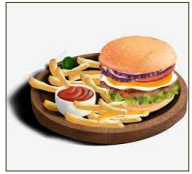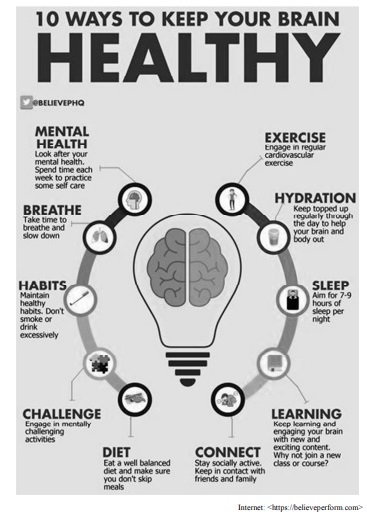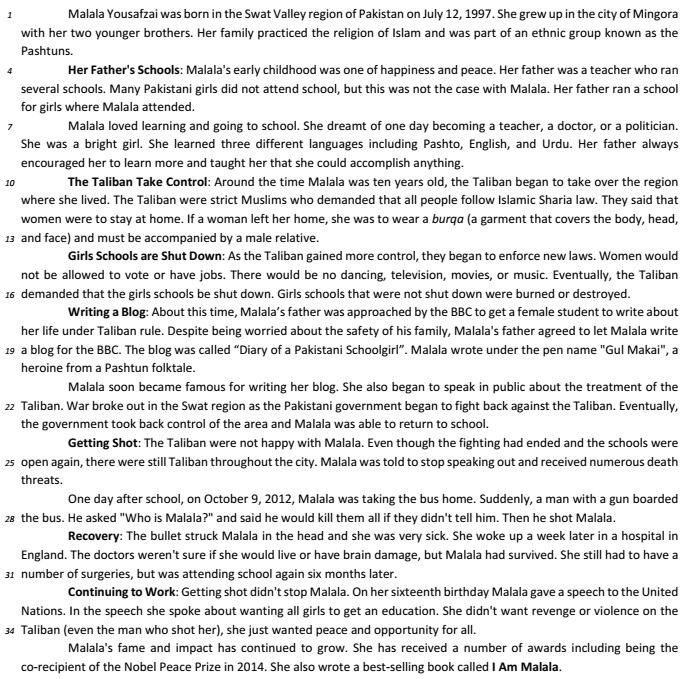Questões de Inglês - Tradução | Translation para Concurso
Foram encontradas 544 questões
Text 4 (for questions 42, 43, 44, 45, and 46)
Social networks
Going into the small room at the end of the corridor, Roberta sat down _______ 1 the computer. It was the computer she had bought when her old one’s hard disk had started to go wrong. Her new computer was a laptop with a lot of extra features and she needed it for her online work _______ 2 her students. Roberta had started to worry that her students would be bored unless she used modern technology in her teaching.
She turned_______ 3 the switch at the back of her computer. She looked at the email messages waiting for her answer, but she ignored them. Then she looked at the homework posted on a special site she created for the students, but she didn’t feel like correcting it. Instead she went to her favorite social network site and looked at the news about her friends. She sent messages to her favorite people and she had many online conversations _______ 4 teaching and other things. She posted some new messages on her own web page and then watched a film clip on a video site which her friend had told her about.
_______ 5 now, it was late and she realized that she had spent too much time talking to her friends online. She was very tired. She would have to do all her work in the morning.
(HARMER, J. Essential Teacher Knowledge: core concepts in English language teaching, p. 42. Harlow: Pearson Education Limited, 2012.
Adaptado.)
“Then she looked at the homework posted on a special site she created for the students, but she didn’t feel like correcting it.”
The phrasal verb underlined in the excerpt can be translated into Portuguese as

Observe a análise linguística abaixo e responda ao que se pede.
I. Em “Salad dressing, something we never used before, is also popular now. ”, o termo dressing, na expressão sublinhada, é um substantivo e significa, em português, molho.
II. No trecho “I fear our traditional way of doing things will soon be forgotten.”, o termo sublinhado é uma expressão idiomática que corresponde a “Eu confio”.
III. No 1º parágrafo, as palavras affected, restaurants, traditional e ingredients são palavras cognatas, mas popular é falsa cognata.
IV. No trecho “Traditionally Koreans don’t use individual plates for eating main dishes.”, as palavras plates e dishes são substantivos e têm significados semelhantes.
V. Em “Before, we had never rewarded good service with money”, foi empregado o past perfect, e o verbo destacado significa recompensar.
Estão CORRETAS apenas
Ele está fumando um cigarro na livraria.”
In English:
“Eu pretendo trabalhar em uma fábrica.”
In English:

According to the previous infographic, it is correct to affirm that

Taking the comic strip above into consideration, choose the correct option.
I.The word "deserves" (7º§) could be translated as "merece".
II.The word "degree" (7º§) is a verb.
III.The word "raiding" (7º§) could be replaced by "framing".
Which one(s) is(are) correct?
I.The word "trinkets" could be translated as "bugigangas" (6º§).
II."Rule off" is a phrasal verb (4º§).
III."Belt loops" could be replaced by "Strap tied" (5º§).
Which one(s) is(are) CORRECT?
( ) The underlined word in “… it helps to know more about hot air balloons themselves.“ is a relative pronoun.
( ) The preposition in the following sentence “…keeping the balloon floating above the ground.” means that the balloon is floating over the ground.
( ) The words ‘actually’, ‘push’, and ‘major’ mean in Portuguese: ‘atualmente’, puxar’ and ‘maior’.
( ) The negative form of “A hot air balloon has three major parts: the basket, the burner, and the envelope.” is “A hot balloon doesn’t have three major parts: the basket, the burner, and the envelope.”
( ) The tense used in the question “Have you ever wondered what keeps a hot air balloon flying?”, is an example of Past Perfect.
Choose the alternative which presents the correct sequence, from top to bottom.
As palavras denominadas de cognatas vêm do latim cognatus que significa referente a parente. Especificamente, refere-se a uma palavra que deriva da mesma família de línguas ou tronco linguístico (Dicio.com., 2020). As palavras cognatas ou os cognatos são muito importantes, pois, a proximidade morfológica com a língua portuguesa auxilia na compreensão do texto em língua inglesa e na aprendizagem de palavras, ainda, desconhecidas.
A partir do acima explicado, assinale a sequência de palavras cognatas retiradas do texto Crimes.
“Although films cannot substitute for actual interaction with numbers of other cultures, they can provide useful preparation for those encounters by fostering understanding and developing sensitivity. ”
In the excerpt above, the words actual and sensitivity can be respectively translated into Portuguese as:
Text for the item.

Internet: <www.ducksters.com> (adapted).
According to the text, judge the item.
The period “Her father always encouraged her to learn
more and taught her that she could accomplish
anything.” (lines 8 and 9) can be translated into
Portuguese as Seu pai sempre a encorajou a aprender
mais e ensinou que ela poderia alcançar qualquer coisa.
Text for the item.

Internet: <www.ducksters.com> (adapted).
According to the text, judge the item.
In the period “Even though the fighting had ended and
the schools were open again, there were still Taliban
throughout the city.” (lines 24 and 25), “throughout” is
an example of preposition which means sobre in
Portuguese.
Text for the item.

Internet: <www.ducksters.com> (adapted).
According to the text, judge the item.
“The doctors weren't sure if she would live or have brain
damage, but Malala had survived.” (line 30) can be
translated as Os médicos não conseguiam dar certeza
se ela sobreviveria ou teria graves sequelas, mas
Malala sobrevivera.
Text for the item.

Internet: <www.ducksters.com> (adapted).
According to the text, judge the item.
The fragment “Despite being worried about the safety of
his family, Malala’s father agreed to let Malala write a
blog for the BBC.” (lines 18 and 19) can be correctly
translated into Portuguese as Apesar de estar
preocupado com a segurança de sua família, o pai de
Malala concordou em deixá-la escrever o blog para a
BBC.